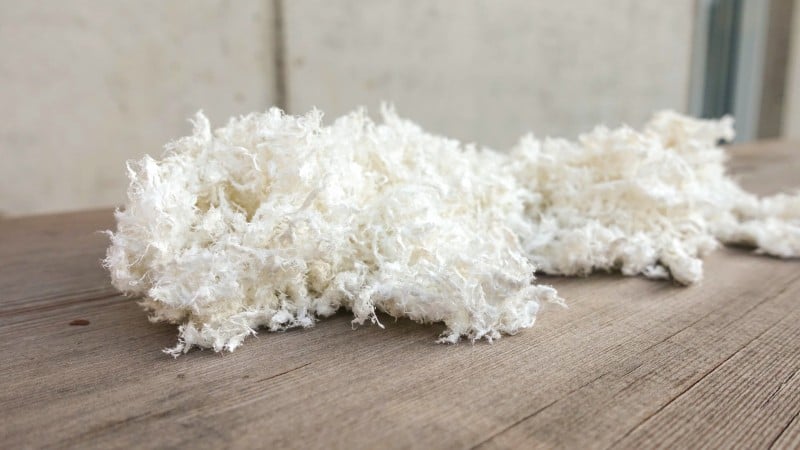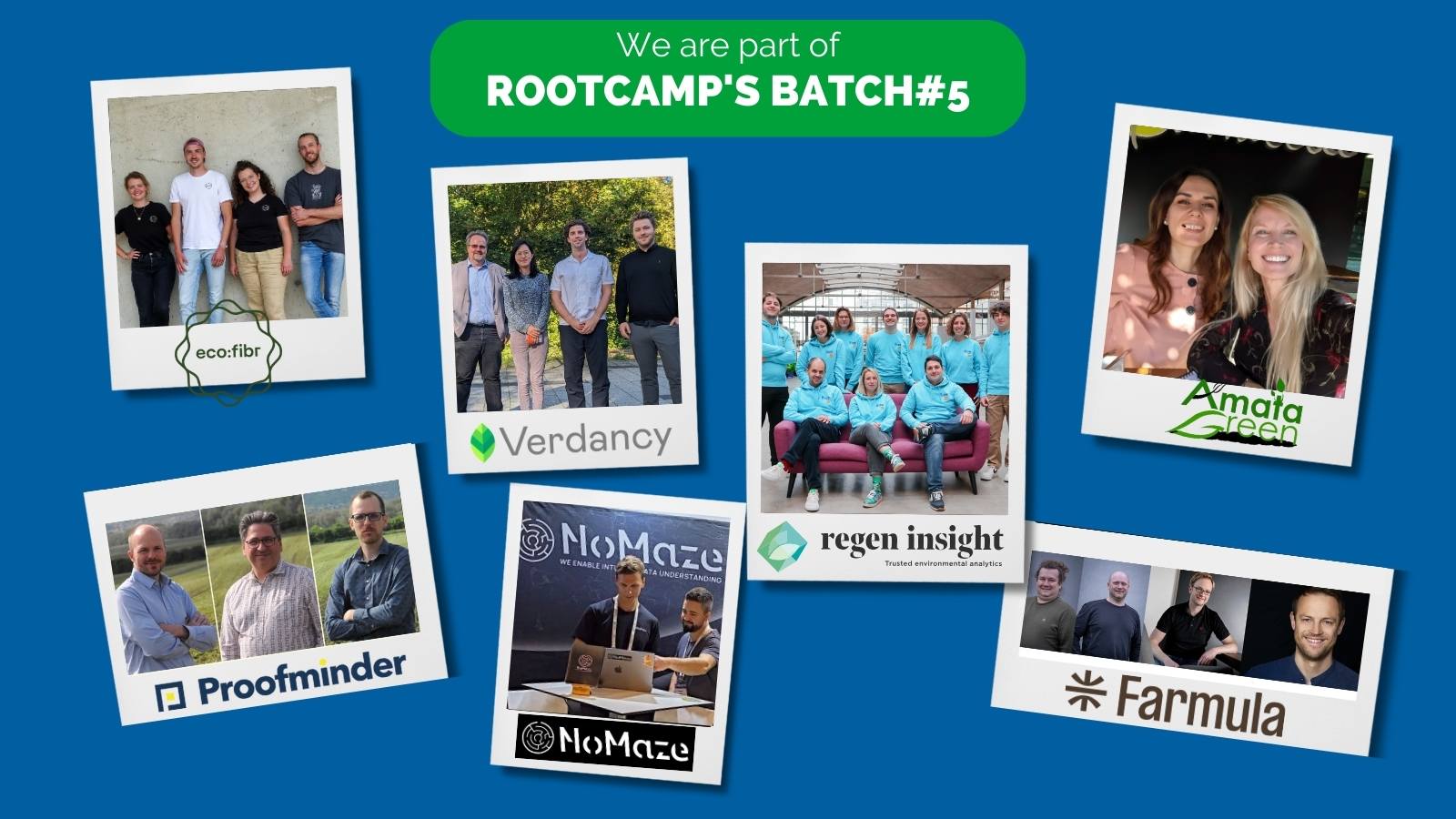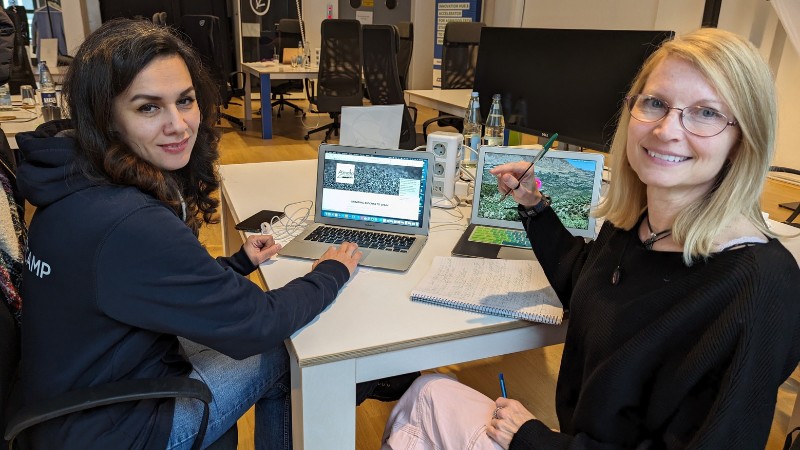Our acceleration program goes into the next round. Get to know our first startup of RootCamp batch #5. Explore the innovative strides of eco:fibr in our interview, where we discuss their pioneering approach to repurposing pineapple waste into eco-friendly pulp. The startup from Hannover was founded in 2022 by Merit Ulmer, Julian Kolbeck and Michelle Spitzer. Up to the time the startup was founded, they worked on all developments in the technical process and the business model while studying on a voluntary basis. Explore their impact, circular economy contributions, scaling goals, and commitment to foster diversity in the startup scene.
.jpg?width=640&height=360&name=ecofibr%20team%20photo(1).jpg)
Your motto revolves around "turning waste into purpose" by producing pulp from pineapple waste. How does this innovative technology work?
At eco:fibr, we've pioneered a sustainable solution and circular process to address the environmental challenges posed by pineapple cultivation. In Costa Rica, we repurpose pineapple plant residues, effectively tackling the disposal issue and producing eco-friendly pulp. Through ongoing research, we've optimized our extraction process, prioritizing sustainability. We've developed a process that avoids harmful chemicals and solvents altogether.
 This is how the pulp from pineapple waste from eco:fibr looks like. Photo: eco:fibr
This is how the pulp from pineapple waste from eco:fibr looks like. Photo: eco:fibr
In what ways does eco:fibr contribute to the circular economy?
We utilize previously unused waste material, specifically pineapple plants, from which we extract the pulp. This extends the value chain of the pineapple plant. We sell the pulp to customers in the paper industry, thereby conserving resources like wood. This practice ensures trees can be used for long-lasting products or, ideally, not cut down at all.
.jpg?width=800&height=450&name=ecofibr%20pineapple%20field%20burned(1).jpg) The team utilizes a byproduct from pineapple cultivation, which is usually burned nowadays in Costa Rica’s agricultural fields. Photo: eco:fibr
The team utilizes a byproduct from pineapple cultivation, which is usually burned nowadays in Costa Rica’s agricultural fields. Photo: eco:fibr
What impact has eco:fibr had on the local communities in Costa Rica in terms of economic sustainability?
This is a very exciting question that we are also currently addressing. Collaborating with our partner plantations, we're in discussions about the chemicals traditionally used for drying and how our process can conserve them. We aim to assess the positive impact on nature and the well-being of local communities. Moreover, by preventing the burning of plants in fields, we can prolong the storage of CO2, resulting in substantial environmental benefits. We anticipate a significant positive impact on the environment.
Can you share some insights into the environmental benefits of using pineapple plant waste compared to traditional wood pulp in paper production?
Our extraction process offers considerably greater resource efficiency for the environment compared to the conventional craft process used for wood pulp. This is due to several reasons: lower operating temperatures and the absence of chemicals containing sulfur or chlorine. Furthermore, our raw material doesn't require cultivation. Unlike wood, which is often grown in monocultures, our approach avoids the negative impact on biodiversity.
You are not an unknown startup in Hannover. How does eco:fibr benefit from Lower Saxony's startup ecosystem?
We've greatly benefited from the startup ecosystem in Lower Saxony. Alongside the awards and grants we've received, we're frequently invited to events and have the opportunity to share our perspective as speakers. This ongoing engagement allows us to continually expand our community and find the support we require.
As someone deeply engaged in initiatives like organizing the “Stammtisch for Female Founders in Hanover” and participating in CreateF - The Female Founders Show, what measures do you think are essential to enhance (gender) diversity within the startup scene?
Visualizing role models and organizing networking events are two methods used to encourage more women to start their own businesses. However, a central issue is the significant disparity in capital allocation between women and men. Female founders face more critical scrutiny regarding their investments compared to male founders. Additionally, far fewer women are involved as business angels.
Why did you apply for the RootCamp acceleration program?
Impressed by the quality and diversity of startups in your program, coupled with excellent feedback, we recognize challenges where RootCamp and its network could serve as a robust partner. Specifically, we seek support in developing efficient harvesting technology for optimizing pineapple operations in Costa Rica. Additionally, exploring potential use cases for our waste streams, such as creating fertilizers, pesticides, oils, and proteins—remains a priority for reintegrating them into the cycle.
You recently announced that the EU is supporting you with a grant of €800,000. Congratulations! How does eco:fibr plan to utilize this funding?
Having completed our laboratory phase and received positive feedback from potential customers during initial tests, we are now gearing up to scale our process into a pilot plant on an industrial scale. The European Fund is enabling us to accomplish this crucial phase. With these resources, we aim to scale our process and make necessary preparations to commence construction of the first production plant in Costa Rica by 2025.
RootCamp is delighted to support eco:fibr's mission and invites all AgTech and Bioeconomy startups with to apply for the next batch of the RootCamp acceleration program. Don't miss this opportunity to join a network of experts, investors, and corporate partners while accelerating your impact. Applications are open until April 23rd. Additionally, mark your calendars for our Demo Day on April 10th, where you'll have the opportunity to meet the founders.
/rootcamp_logo_white_2022.png?width=2123&height=630&name=rootcamp_logo_white_2022.png)

/RC%20logo%202022.png?width=2325&height=703&name=RC%20logo%202022.png)




